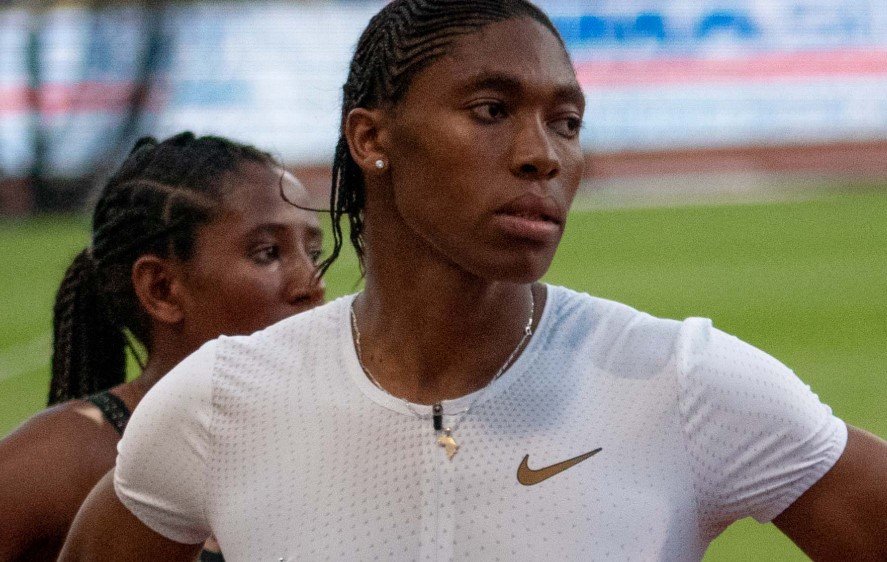Veronica Garcia didn’t just run the 400 meters this weekend — she owned it. The Spokane high school sprinter, competing as a transgender athlete, left the crowd buzzing and parents divided after dominating the Class 2A race at the Washington State Track and Field Championships in Tacoma.
Garcia crossed the finish line nearly a full second ahead of her closest rival, smashing her own record and claiming her second consecutive state title. But it wasn’t just her speed that made headlines — it was the fierce reaction from the stands, and the wider debate swirling around transgender athletes in women’s sports today.
Speed, Focus, and a Record That Speaks Louder Than the Booing
At just 18 years old, Veronica’s performance was nothing short of stunning. Running with a determination that was clear in every stride, she improved her previous state record, leaving many wondering if anyone could realistically catch her next season.
The boos from some sections of the crowd were audible. But Veronica, seemingly unfazed, kept her eyes locked on the finish line. For her, the race wasn’t about the noise — it was about proving what she’s capable of. And boy, did she prove it.
You could tell she was in the zone, moving with a fluidity and strength that few of her competitors could match. The stopwatch showed 55.12 seconds — nearly a full second faster than the runner-up. In sprinting terms, that’s a massive gap. It’s the kind of lead that sends a message: this athlete isn’t just participating; she’s dominating.
The Controversy That Won’t Quit
Garcia’s victory reignited a firestorm of debate. Since President Donald Trump’s executive order banned transgender athletes from competing in girls’ and women’s sports at the federal level, local and state sports authorities have been scrambling to figure out how to enforce or contest such rules.

Many parents in Tacoma voiced their frustration loudly, claiming the competition was unfair. Some argued that Veronica’s participation undermined the spirit of girls’ sports, while others stressed the importance of inclusivity and fairness for transgender youth. It’s a heated conversation with no easy answers.
-
Protesters outside the event carried signs reading “Fair Play for All” and “Protect Women’s Sports.”
-
Supporters cheered Veronica on, emphasizing her hard work, training, and right to compete.
The conflicting voices make it clear this debate isn’t fading anytime soon.
What The Data Says About Transgender Athletes and Performance
Statistics on transgender athletes’ performance advantages or disadvantages are often cited but rarely clear-cut. Science on the subject is evolving, but here’s what some recent studies suggest:
| Factor | Impact on Performance |
|---|---|
| Testosterone suppression | Can reduce muscle mass and strength |
| Puberty blockers | Influence physical development |
| Duration of hormone therapy | Longer therapy tends to align physiology closer to gender identity |
| Age of transition | Early transition often leads to less advantage |
It’s a complex mix — for example, Veronica’s case includes years of hormone therapy, which some experts argue levels the playing field. Yet, critics insist that residual physical advantages can still tip the scales. Meanwhile, many sports organizations worldwide are updating policies, but there is no global consensus.
The Human Side: Beyond Records and Rules
Beyond the statistics and policies, there’s a young woman who’s working hard, facing challenges, and chasing her dreams. Veronica Garcia’s story is not just about sprinting; it’s about identity, courage, and resilience.
She’s faced criticism and cheers alike but refuses to be defined by controversy. Her coach praises her focus and humility. “Veronica trains like a champion and respects everyone on the track,” he said. “She’s here to run fast and represent her community with pride.”
It’s a reminder that behind every headline, there’s a person with hopes, struggles, and ambitions. Sports often reflect society’s tensions and triumphs — and this story is no different.
What’s Next for Veronica and High School Track?
With the Asian Games, World Championships, and potentially even Olympic dreams on the horizon, Veronica’s journey is just beginning. Her win in Tacoma will be remembered as a milestone in a changing sports landscape.
For schools and sports bodies, the challenge will be balancing fairness, safety, and inclusion — a task that feels more urgent every day. Policies may shift, protests might continue, but athletes like Veronica Garcia keep the spotlight on what it really means to compete.
Whether you cheer or boo, it’s clear that this isn’t just a race against rivals. It’s a race that reflects deeper societal questions — questions about identity, fairness, and the future of sport.








